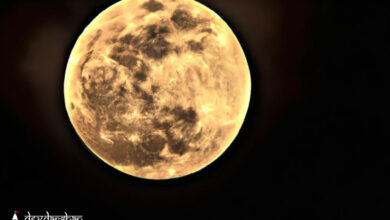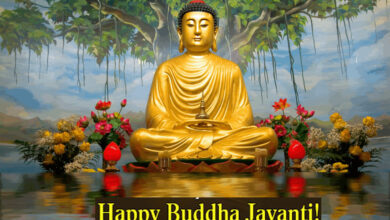History of Vishu
Discover the Rich and Colourful History of Vishu: Traditions, Customs, and Celebrations | Engage with the Cultural Significance of Vishu Festival
Immerse yourself in the enchanting history of Vishu, an ancient festival steeped in culture and tradition. From its ancient agricultural roots to its modern-day significance, follow the captivating journey of Vishu through generations. Explore the symbolism, rituals, and artistry that define this celebratory occasion, and gain a deeper understanding of its historical importance in the tapestry of Indian heritage
Read also:
Introduction
Vishu, the vibrant and cherished festival of Kerala, holds a special place in the hearts of its people. This annual celebration marks the beginning of the Malayalam New Year and is steeped in tradition, folklore, and rich customs. The History of Vishu is a journey that takes us back to ancient times, exploring its origins, legends, rituals, and the modern adaptations that keep its spirit alive today.
Origins and Significance of Vishu
Vishu traces its roots to ancient Hindu mythology and astronomy. It falls on the first day of the month of Medam in the Malayalam calendar, typically occurring in April. This alignment with the vernal equinox signifies a time of renewal and new beginnings. The name “Vishu” is derived from the Sanskrit word “Vishuvam,” which means “equal.”
The Cosmic Connection
According to Hindu cosmology, Vishu is celebrated to commemorate the day Lord Krishna liberated the world from the demon Narakasura. It is believed that on this day, the sun is in perfect alignment with the equator, making the lengths of day and night nearly equal. This cosmic harmony is a reflection of the victory of light over darkness, good over evil.
Agricultural Significance
Vishu is also deeply tied to agriculture and the harvest season. The festival marks the time when farmers prepare to harvest their crops and offer gratitude for a bountiful yield. The Vishu Kani, an essential part of the festival, consists of auspicious items like rice, fruits, vegetables, and flowers, symbolizing prosperity and abundance.
Vishu Festival Kerala
Kerala, with its lush greenery and thriving paddy fields, comes alive during Vishu. The state’s agrarian heritage is interwoven with the festival’s fabric, making it a vital cultural celebration for its people.
Legends and Myths
The tapestry of Vishu is woven with captivating legends that add depth and meaning to the festival’s significance. One such legend is the story of Lord Krishna and his role in the genesis of Vishu.
Lord Krishna and the Battle of Good and Evil
As the legend goes, Lord Krishna waged a battle against the oppressive demon Narakasura, who had been causing immense suffering. After a fierce battle, Lord Krishna emerged victorious, signifying the triumph of righteousness over wickedness. The day of his victory corresponds to Vishu, marking it as a day of hope, renewal, and spiritual awakening.
The Serpent King’s Blessing
Another intriguing tale revolves around Adishesha, the serpent king, and his blessing upon the people of Kerala. It is said that Adishesha, who forms the cosmic bed of Lord Vishnu, emerged from the Earth on Vishu to bestow his blessings. This event symbolizes protection, prosperity, and well-being.
Rituals and Traditions
Vishu is celebrated with a myriad of rituals and customs that add color and charm to the festival. These rituals are meticulously observed by families across Kerala, creating a strong sense of unity and cultural identity.
Vishukani: The Auspicious Sight
The heart of Vishu lies in the preparation and viewing of the Vishukani. It involves arranging an assortment of items like rice, golden cucumber, betel leaves, and metal mirror in a traditional vessel the night before Vishu. The Vishukani is the first sight people behold upon waking up on Vishu morning, and it is believed that gazing at these auspicious items ensures a year filled with prosperity.
Celebration of Abundance, Gratitude: Vishu Kani
The Vishukani encapsulates the essence of Vishu – a celebration of abundance, gratitude, and positivity. This cherished tradition binds families and communities, fostering a sense of togetherness.
Sadya: The Grand Feast
No Vishu celebration is complete without indulging in a sumptuous feast known as the Sadya. This elaborate spread comprises a medley of traditional Kerala dishes served on a banana leaf. From the crispy golden-brown banana chips to the rich flavors of avial and olan, the Sadya is a culinary delight that tantalizes the senses.
Vishu Sadya
The Sadya not only delights the taste buds but also symbolizes the harmony between different elements – a reflection of the harmonious coexistence that Vishu embodies.
Vishu Kaineetam: A Cultural Extravaganza
Vishu Kaineetam, a cherished custom, involves elders giving money to the younger members of the family as a token of blessings. This tradition reinforces familial bonds and imparts a sense of responsibility and respect towards elders.
Vishu Kaineetam
This exchange of blessings and gifts is a testament to the values of love, compassion, and filial piety that form the bedrock of Kerala’s rich cultural heritage.
Vishu Padakkam: Traditional Gifting
Vishu Padakkam, the tradition of gifting, is an integral part of the festival. It is customary for people to exchange gifts and tokens of love, strengthening social bonds and fostering a sense of camaraderie.
Vishu Padakkam
The act of gifting is a reflection of the joy and generosity that permeate the air during Vishu, making it a celebration of shared happiness and goodwill.
Time-Honored Customs: Firecrackers and Music
Firecrackers and music hold a special place in Vishu celebrations, adding an element of festivity and merriment.
Vishu Firecrackers
The resounding crackles of firecrackers and the melodious tunes of traditional songs create an atmosphere of jubilation, infusing the festival with energy and enthusiasm.
Vishu Wishes: Spreading Joy and Positivity
During Vishu, heartfelt wishes and greetings are exchanged among friends and family, spreading joy and positivity.
Significance of Vishukkani
The Vishukkani embodies the spirit of Vishu – it is a visual representation of prosperity, hope, and the promise of a new beginning.
Vishu Songs: A Melodious Tradition
Vishu is incomplete without the melodious strains of traditional songs that fill the air with their enchanting tunes.
The Art of Pookkalam: Floral Rangoli
The creation of Pookkalam, intricate floral rangoli designs, is an art form that adds an aesthetic charm to Vishu celebrations.
Vishu Festival: A Cultural Extravaganza
The Vishu festival transcends its religious significance to become a celebration of Kerala’s rich cultural heritage and diversity.
Evolution of Vishu over the Centuries
Throughout history, Vishu has evolved and adapted, reflecting changing times while retaining its core essence.
Harvest Festival Kerala
Vishu’s status as a harvest festival underscores its deep-rooted connection to Kerala’s agrarian society and agricultural abundance.
Embracing Change: Modern Vishu Celebrations
Modern Vishu celebrations have embraced innovation while preserving the traditional customs that make the festival unique.
Vishu Greetings: Spreading Joy
In the digital age, Vishu greetings have extended beyond physical boundaries, allowing people to connect and share their wishes across the globe.
Regional Variations of Vishu Celebrations
Vishu’s celebration varies across different regions of Kerala, showcasing the state’s cultural diversity.
Vishu Sadya: A Culinary Extravaganza
The Vishu Sadya reflects the culinary diversity of Kerala, with regional variations adding a unique flavor to the feast.
Vibrant Attire and Adornments
Vishu is an occasion to don vibrant attire and adornments, symbolizing the festive spirit and joyous mood.
Vishu Traditions: A Tapestry of Culture
The traditions associated with Vishu are a tapestry woven with threads of culture, heritage, and communal harmony.
Exploring Vishu Beyond Kerala
While rooted in Kerala, Vishu’s essence has transcended borders, captivating people beyond the state.
New Year Festival India: A Kaleidoscope of Celebrations
Vishu is a testament to the rich tapestry of New Year celebrations that adorn India’s cultural landscape.
FAQs
What is the origin of the Vishu festival?
The Vishu festival’s origins can be traced back to Hindu mythology, where it marks the day Lord Krishna defeated the demon Narakasura.
Why is the Vishukani arrangement significant?
The Vishukani arrangement symbolizes prosperity and abundance, and gazing at it on Vishu morning is believed to bring good luck.
What is the Vishu Sadya?
The Vishu Sadya is an elaborate feast comprising traditional Kerala dishes served on a banana leaf, symbolizing harmony and coexistence.
How is Vishu celebrated outside of Kerala?
Vishu’s celebration has extended beyond Kerala, capturing the fascination of people across India and beyond.
What role do firecrackers play in Vishu celebrations?
Firecrackers add a festive and celebratory element to Vishu, infusing the atmosphere with energy and enthusiasm.
What is the significance of Vishu Padakkam?
Vishu Padakkam involves the exchange of gifts, reinforcing familial bonds and spreading joy during the festival.
How does Vishu embody Kerala’s cultural diversity?
Vishu celebrations vary across regions of Kerala, showcasing the state’s diverse cultural landscape.
How has Vishu evolved over the centuries?
Vishu has evolved over time, adapting to changing circumstances while retaining its core essence and significance.
What is the meaning behind the Pookkalam?
Pookkalam, or floral rangoli, is an art form that adds an aesthetic charm to Vishu celebrations, symbolizing beauty and creativity.
How does Vishu connect with modern celebrations?
Modern Vishu celebrations have embraced innovation, allowing people to connect digitally and share their wishes across the globe.
Conclusion: History of Vishu
The History of Vishu is a captivating narrative that weaves together ancient legends, cultural traditions, and the vibrant spirit of Kerala. From its cosmic origins to its modern-day adaptations, Vishu stands as a testament to the resilience and beauty of a festival that continues to unite generations and spread joy. As we delve into the tapestry of Vishu’s history, we uncover a celebration that transcends time and space, leaving an indelible mark on hearts and minds alike.



